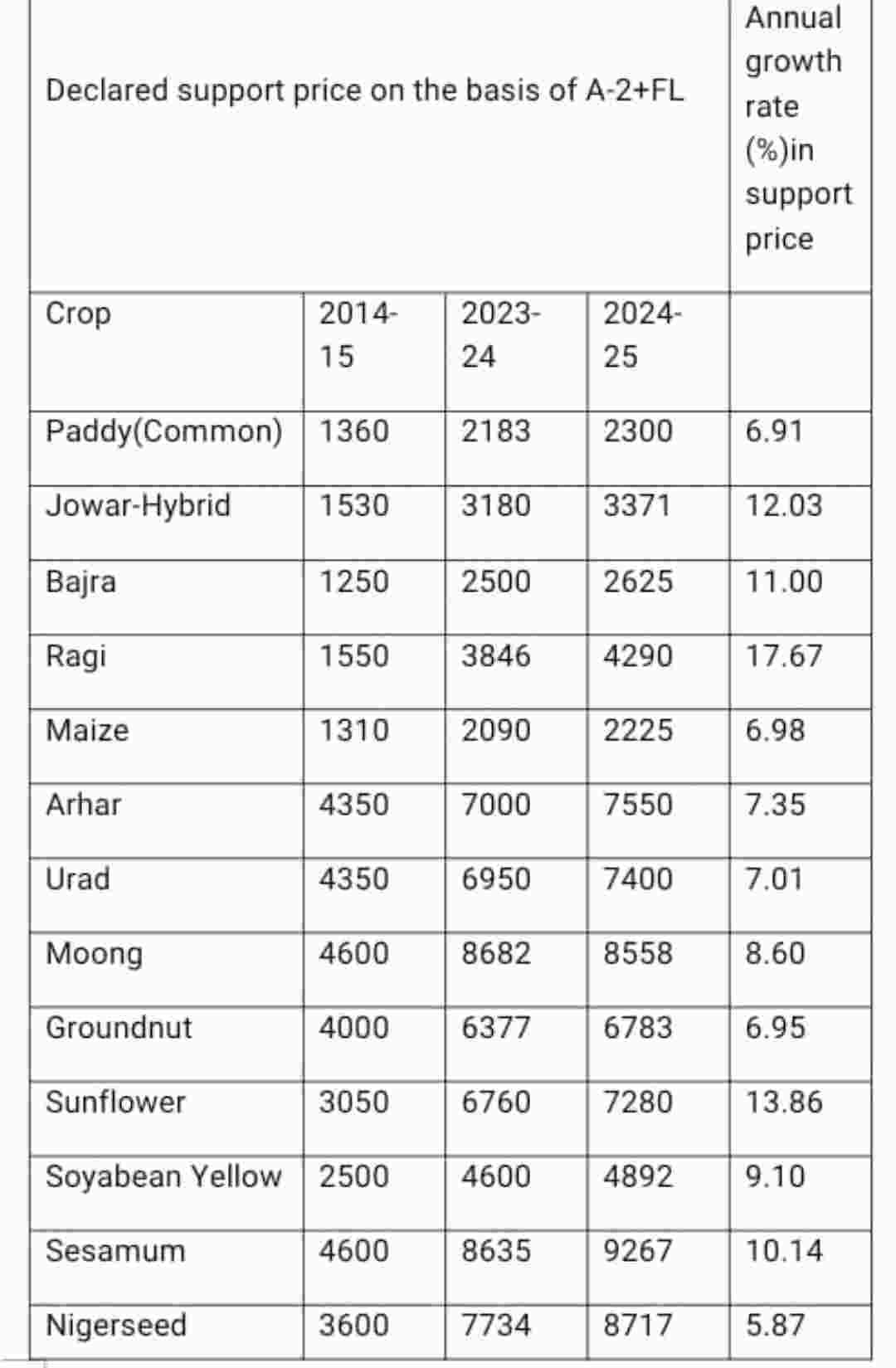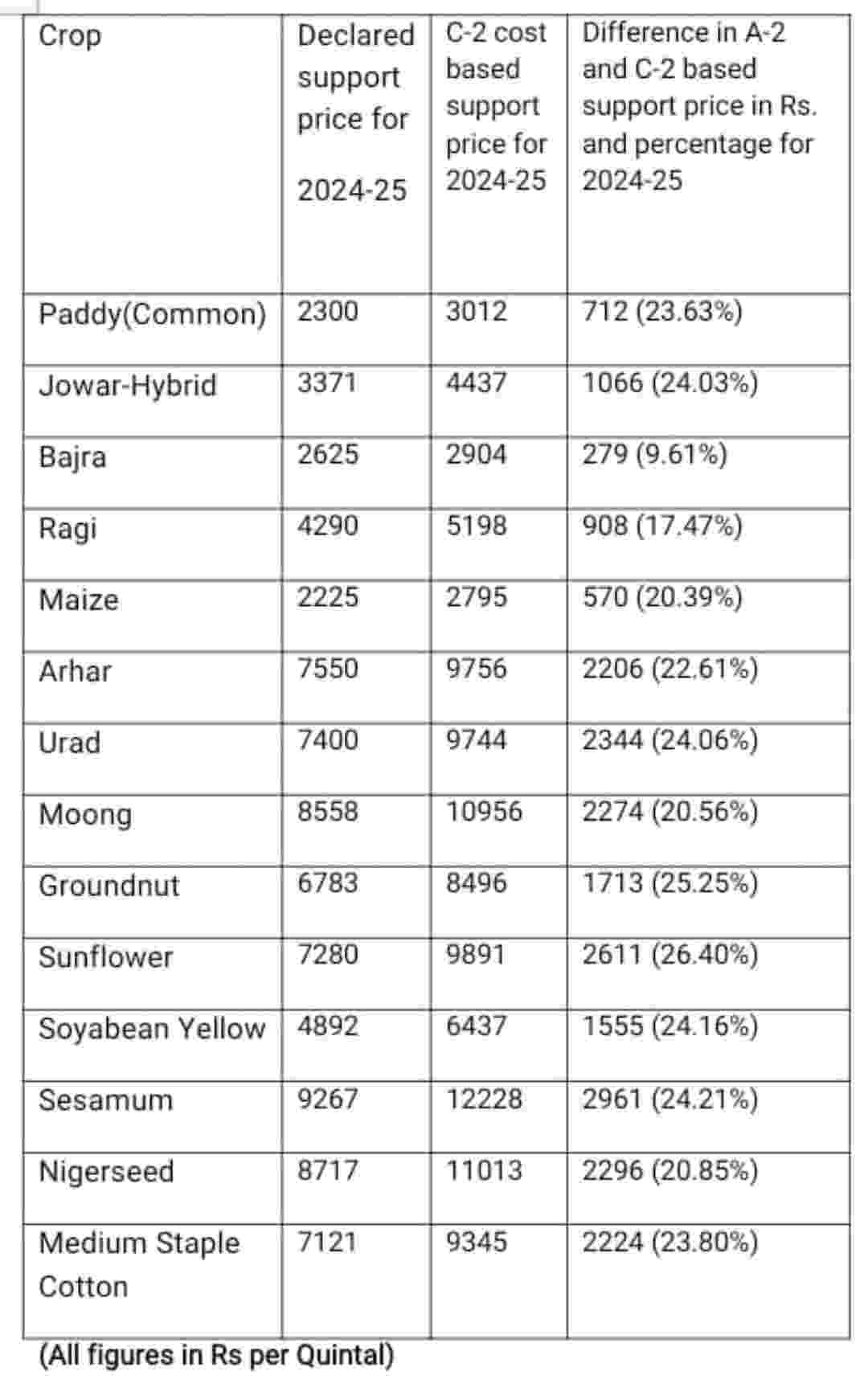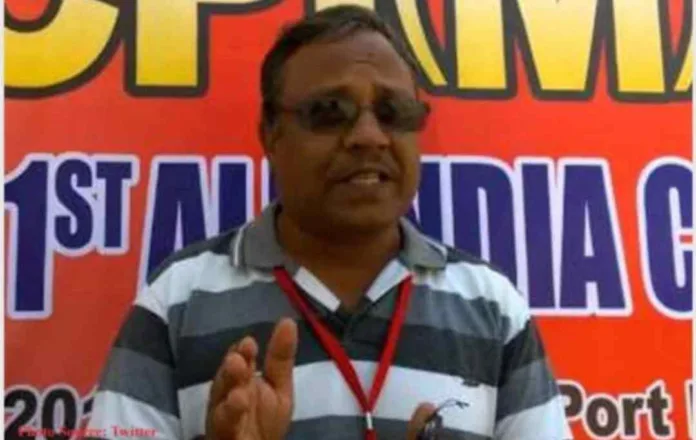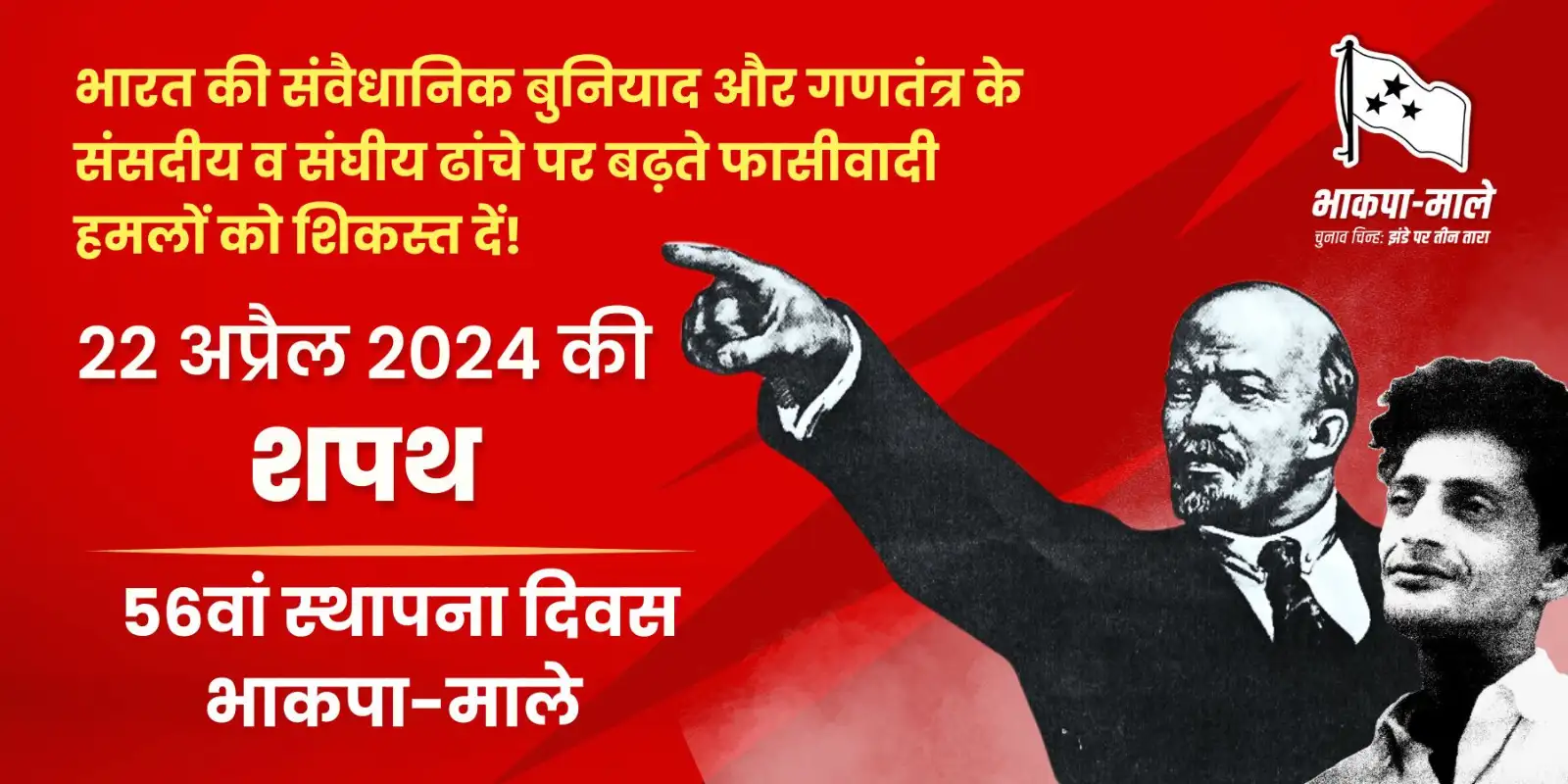The recent Lok Sabha election results have significantly reduced the influence of both the BJP and the NDA, marking a severe defeat in around 160 rural constituencies. This mandate indicates a strong opposition to the BJP’s communal and pro-corporate policies, reflecting the public’s unwillingness to allow violations of democratic norms, the Constitution, and social justice. However, recent government actions suggest that the BJP remains indifferent to this mandate and intends to continue the same policies that have led to a deepening crisis over the past decade. It’s surprising and alarming that the Prime Minister’s oath was administered to someone not even elected as the leader of his parliamentary group by his own party, indicating a breach of constitutional and democratic norms by the President as well.
In line with this, the latest decision involves the minimum support price (MSP) for 14 Kharif crops for the year 2024-25, announced by the Railway Minister instead of the Agriculture Minister, claiming that the price is one and a half times the cost. Yet again, the BJP government has betrayed farmers. Ironically, this ‘minimum’ price often becomes the ‘maximum’ price for crops, as traders in both mandis and open markets refuse to pay more, leaving farmers without protection from market exploitation.
The nationwide farmer movement arose from the issue of MSP amidst increasing farmer suicides and an agrarian crisis. In the 2014 Lok Sabha elections, the BJP promised to alleviate inflation, poverty, and unemployment, offering farmers ‘one and a half times the support price of C-2 cost’ and loan waivers. Later, they even pledged to double farmers’ incomes by 2022-23.
However, during its ten-year rule, the BJP failed to fulfill these promises, prioritizing corporate profits over farmers’ welfare. Their policies aim to dismantle traditional agriculture and promote corporate control over Indian agriculture, following World Trade Organization directives. The three agricultural laws passed by the previous government faced widespread opposition, leading to the formation of the Sanyukt Kisan Morcha and a prolonged struggle that forced the Modi government to withdraw these laws and agree to a C-2 based MSP, a commitment later abandoned under corporate pressure.
The Modi-Shah-led BJP has a history of betraying farmers and suppressing their movements. After the 2014 elections, the government refused to provide a C-2 based MSP in the Supreme Court, citing market distortion. Since then, they have offered an A-2+FL based MSP, significantly lower than C-2+50%, causing substantial annual losses to farmers and making agriculture unprofitable. Despite this, the government falsely claims to provide a support price one and a half times the cost. The government has even harassed opposition states offering bonuses to farmers.
Despite claims of a significant increase in Kharif crop MSPs, the reality is that the increase is minimal compared to inflation in food grain and vegetable prices, which is around 8-10%. This increase is also negligible compared to the 18-28% GST on agricultural inputs, drastically raising production costs and crippling Indian agriculture.
The Swaminathan Commission recommended setting the MSP based on the gross cost of production (C-2 price), which the BJP has refused to accept. The Commission advised a minimum support price of one and a half times the gross cost (C-2) to ensure farmers’ livelihoods and improve their living standards. Modi’s third term in power is disastrous for farmers, as he has again refused to provide a C-2 based MSP.
Examining the support prices declared by the Central Government from 2014-15 to this year reveals an average annual increase of 5.87% to 17.67%, insufficient to offset rising production costs and market inflation. Consequently, farmers’ indebtedness and suicides have increased during Modi’s tenure. Today, half of the farming families are in debt, with an average debt of Rs 74,121, a significant portion of which is owed to moneylenders. This indebtedness often leads to farmer suicides.
The supposed increase in MSPs is far below the actual support price based on C-2, causing substantial losses for farmers. For instance, the support price for common paddy is 23.63% below the C-2 based price. The government’s failure to adequately support farmers results in enormous losses and contributes to the prosperity of corporates at the expense of the farming community.


The ongoing agricultural crisis is evident in the declining incomes, rising debts, and increasing suicides among farmers. The only solution is to provide a fair MSP based on the Swaminathan Commission’s recommendations and legally guarantee the government purchase of all crops. However, this approach conflicts with corporate interests, and the Modi government has shown a clear preference for corporate profits over farmers’ welfare. In this context, the only recourse for the people is to unite in mass struggles both inside and outside Parliament to advocate for alternative policies and protect the country’s farmers.
Article : Sanjay Parate
(The author is the Vice President of Chhattisgarh Kisan Sabha, affiliated to All India Kisan Sabha)







Recent Comments